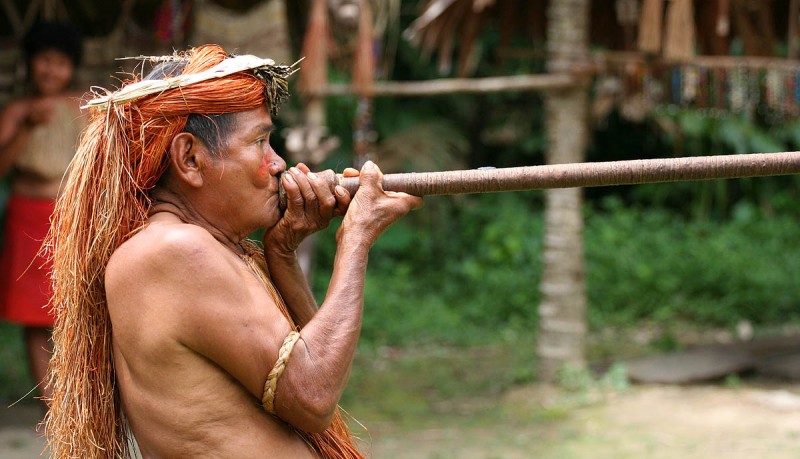Honouring the land rights of indigenous peoples would lead to a safer climate for everybody, according to leading economist Lord Nicholas Stern.
The world must become “zero net carbon” by 2070-80 if it wants to stay within the 2C limit set by the Paris climate agreement, said Stern, or “much earlier for 1.5C”. But some industries – including aviation – are expected to continue emitting carbon late into the century.
“If there are going to be some that are [carbon] positive,” Stern told an audience at a World Resources Institute (WRI) event in Washington, DC, “there have got to be some that are negative and it’s the forests and the grasslands that are the big potential source there.”
Stern was speaking on Friday at the launch of a WRI study that found that securing indigenous land tenure in Colombia, Brazil and Bolivia could avoid the release of an estimated 42.8–59.7 Mt CO2 per year through avoided deforestation. This is equivalent to taking between 9 and 12.6m cars off the road.

Source: WRI
When indigenous land rights are recognised, there is plenty of evidence that the rate of deforestation goes down, which means the forests continue locking in carbon.
“With secure tenure, indigenous people have a clear economic incentive to better manage their forests,” said study author Helen Ding, an environmental economist at WRI.
Weekly briefing: Sign up for your essential climate politics update
Communities have a legal claim on one eighth of the world’s forests. “The consequences of all this for deforestation, for greenhouse gases and so on, is also profound,” said Stern, who authored the pivotal Stern Review on climate change for the UK government in 2006.
“The role of forests in climate mitigation is vastly under-appreciated, even by most climate experts,” said Daniel Zarin, director of programmes at the Climate and Land Use Alliance at the same event. “Other than the oceans, there are no other carbon capture and storage technologies that are nearly as cost-effective as forests.”
With the leaders of the G20 and the governor of the Bank of England pushing for great investment in green projects in recent weeks, Stern said “secure land rights, whether they be of indigenous people or anybody else, is fundamental to investment”.
https://www.youtube.com/watch?v=zabMrNAAres
He said that securing certain forest areas could be considered as part of a nation’s flood protection infrastructure.
“If you look after the lands up in the hills then that holds the water and is essentially flood control for further down. If you built channels, you’d count that as your infrastructure… But if something is doing it further up the hill because you manage it better, it’s actually very reasonable to call that natural infrastructure,” he said.
The economic benefits accrued by avoided emissions and the value associated with keeping forests intact was estimated at a whopping US$523 billion–1.165 trillion in Brazil over the next 20 years. In Bolivia the savings could be $54–119 billion and $123–277 billion in Colombia.
That is based on the social cost of carbon used by the US government, of $41 a tonne. Stern said it was a conservative figure and the actual value of avoiding dangerous climate change was likely to be higher.
The argument went beyond the economy and the environment, Stern added. Indigenous peoples in the Amazon and across the world are being dispossessed by development. In some cases, their rights are being considered. A massive dam project in the Brazilian Amazon was suspended in April over concerns about the impact on local tribes.
“We are talking about justice here, we ought to be very clear about that… If you haven’t got those rights, you’re much more vulnerable to outsiders… If you’re vulnerable to outsiders it’s theft. Its solid rights that protect you against that.”
